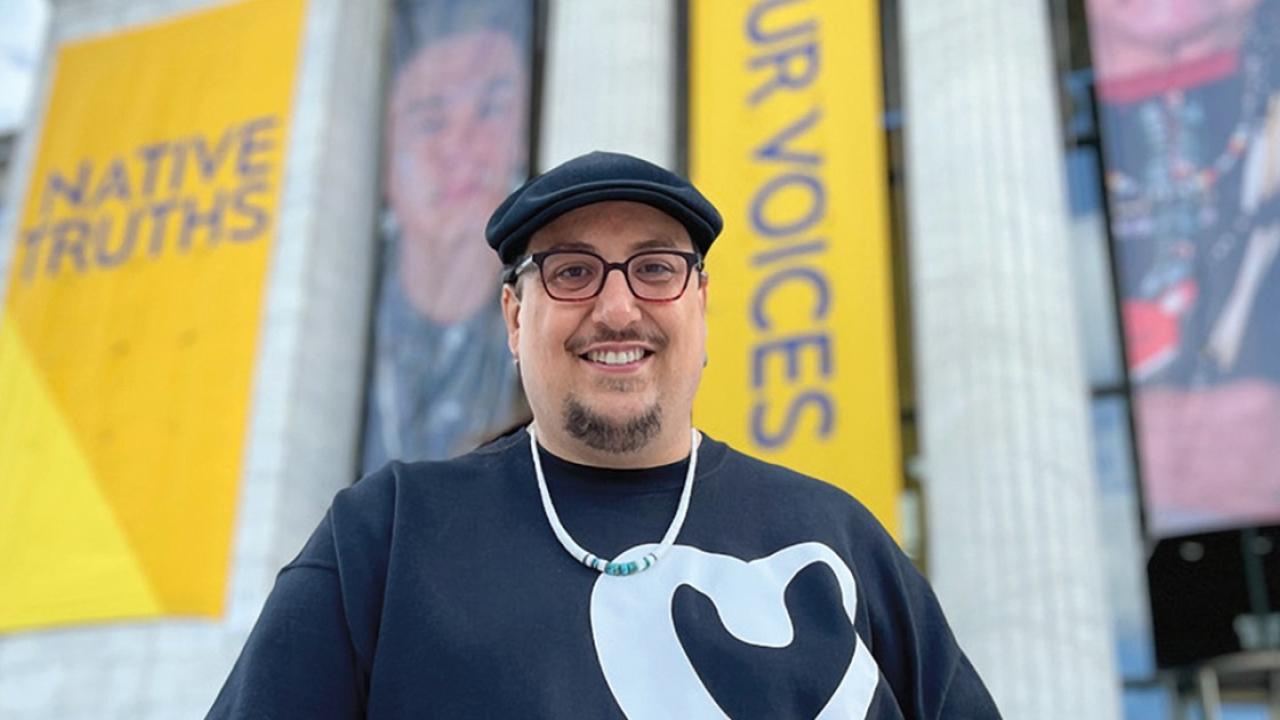November 17, 2022 | 7 p.m. EST Free and open to the public.
The Newark Earthworks Center is hosting Dr. Doug Kiel, Northwestern University, who will present "#LandBack: Histories of Restoring Indigenous Presence" on Zoom at 7 p.m. EST.
Land is at the heart of Indigenous identities, and histories of U.S. colonialism are largely defined by attempts to separate Native people from their collective inheritance. Native communities have reacquired territory through a variety of means in recent years, which has often been met with resentful opposition at the local level. The Land Back movement is nonetheless gaining steam, accruing victories and making a better world. This present-day movement has roots that reach deep into the past, and has high stakes for the future.
7:00 – 8:00 p.m. EST
Carmen Zoom, Registration required.
We strive to host inclusive, accessible events that enable all individuals, including individuals with disabilities, to engage fully. To request an accommodation or for inquiries about accessibility, please contact Dr. John Low at 740-755-7857 or low.89@osu.edu . At least two weeks' advance notice will help us to provide seamless access.
There will be 15 minutes for a Question and Answer session at the end of the webinar. Please submit your questions in the chat.
Dr. Doug Kiel (PhD., University of Wisconsin–Madison, 2012) is a citizen of the Oneida Nation and studies Native American history, with particular interests in the Great Lakes region and twentieth century Indigenous nation rebuilding. He is working on a book manuscript entitled Unsettling Territory: Oneida Indian Resurgence and Anti-Sovereignty Backlash. The Oneida Nation of Wisconsin, a community that had been dispossessed of their New York homelands in the early nineteenth century, yet again suffered devastating land losses as a result of the Dawes Act of 1887—a policy that President Theodore Roosevelt once called “a mighty pulverizing engine to break up the tribal mass.” Kiel’s book examines how the Oneida Nation’s leaders strengthened the community’s capacity to shape their own future by envisioning, deliberating and enacting a dramatic reversal of fortune during the twentieth century. His book also examines the origins of recent litigation between the Oneida Nation and the Village of Hobart, a mostly non-Native municipality that is located within the boundaries of the Oneida Reservation and seeks to block the tribe from recovering land that was lost a century ago.
Speaker series as part of Indigenous Ohio: OSU and Native Arts and Humanities Past and Present grant. Sponsored by the Newark Earthworks Center and the Global Arts + Humanities Discovery Theme.
Kind thanks to Jared Gardner Department of English and Director of Popular Culture Studies for assisting in set up and hosting this web presentation.
